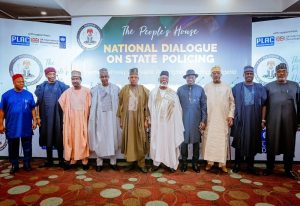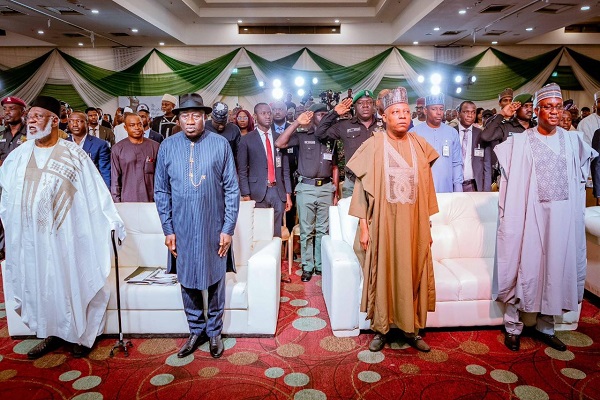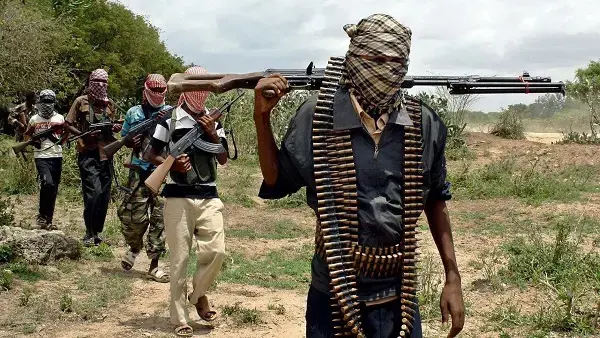Support for state police gained further momentum yesterday with two former Nigerian leaders – Dr. Goodluck Jonathan and Gen. Abdulsalami Abubakar — throwing their weight behind it. They suggested that issues such as its integration into the national security architecture and operationalization must be adequately addressed.
Senate President Godswill Akpabio and House of Representatives Speaker Tajudeen Abbas, who also supported the proposed policing model, gave reasons why it should start now. However, Inspector-General of Police Kayode Egbetokun differed with them, saying Nigeria was not ripe for state police.

Jonathan, Abubakar, Akpabio, Abbas, and Egbetokun spoke at a one-day dialogue on state policing in Abuja yesterday. President Bola Tinubu, the special guest of honor at the event with the theme: “Pathways to Peace: Reimagining Policing in Nigeria,” renewed his commitment to reforming the police. It was organized by the House of Representatives ahead of the passage of the State Police Bill.
The Executive Bill was rejected by the Ninth National Assembly on the ground that governors could misuse state police if empowered to have control over its personnel. However, the rising spate of insecurity made many of those opposed to the idea change their position and support it. For instance, many states in the North are now fully in support of state police.
Last month, 16 states indicated their support for state police at the National Economic Council (NEC) meeting. The remaining states are expected to make their position known at this month’s NEC session.
Vice-President Kashim Shettima, representing President Bola Ahmed Tinubu at yesterday’s event, said state policing was not just a policy proposal but a potential milestone in the evolution of the nation’s law enforcement framework. He emphasized the need for a law enforcement agency that would address the demands of all communities across the country.
Former President Jonathan said state police should no longer be seen as an idea but a done deal. He stated that there was no way any state could have adequate security without state police, citing successful experiments in some states. He emphasized the need to focus on the operational model the system would take.
Former Head of State, Gen. Abubakar, advocated for giving traditional rulers constitutional roles in addressing security challenges, alongside the possibility of state police. He stressed the importance of transparency, honesty, and accountability in government for peace and security.
IGP Egbetokun disagreed, saying the country was not mature for state police, citing concerns about multiple command structures, political misuse, ethnic tension, and divided loyalty. He recommended merging existing security agencies instead and increasing yearly police recruitment.
Ooni of Ife, Oba Enitan Ogunwusi, urged leaders to move from talks to action in addressing security challenges. He emphasized the role of traditional institutions in tackling insecurity and called for a commitment to implementing state police for peace in Nigeria.
House of Representative Deputy Speaker Ben Kalu highlighted the urgent need for a multi-layered policing approach to tackle the nation’s current security challenges, citing the significant amounts paid in ransoms to kidnappers. He emphasized the importance of prioritizing local security and enabling a more responsive policing environment.




